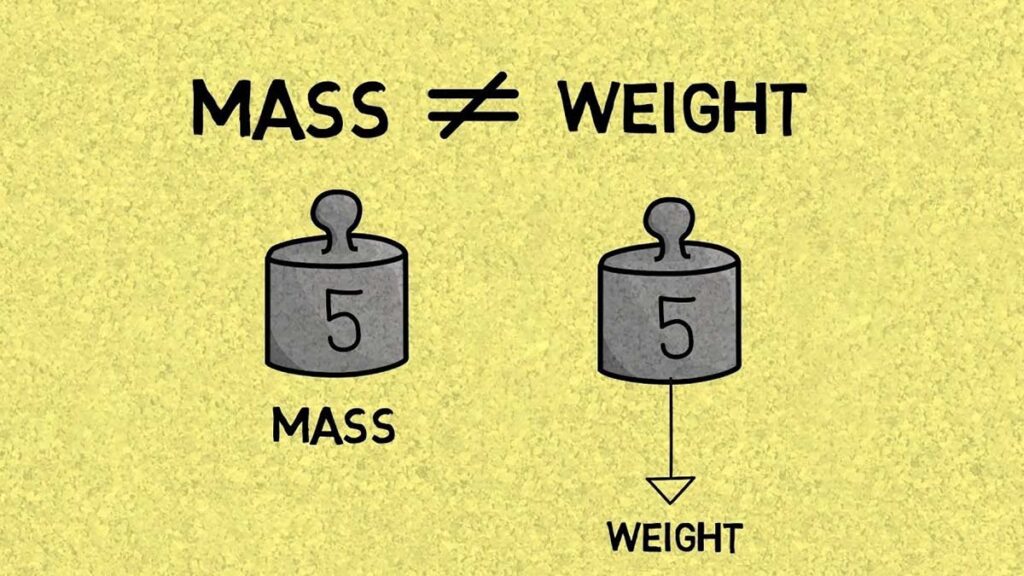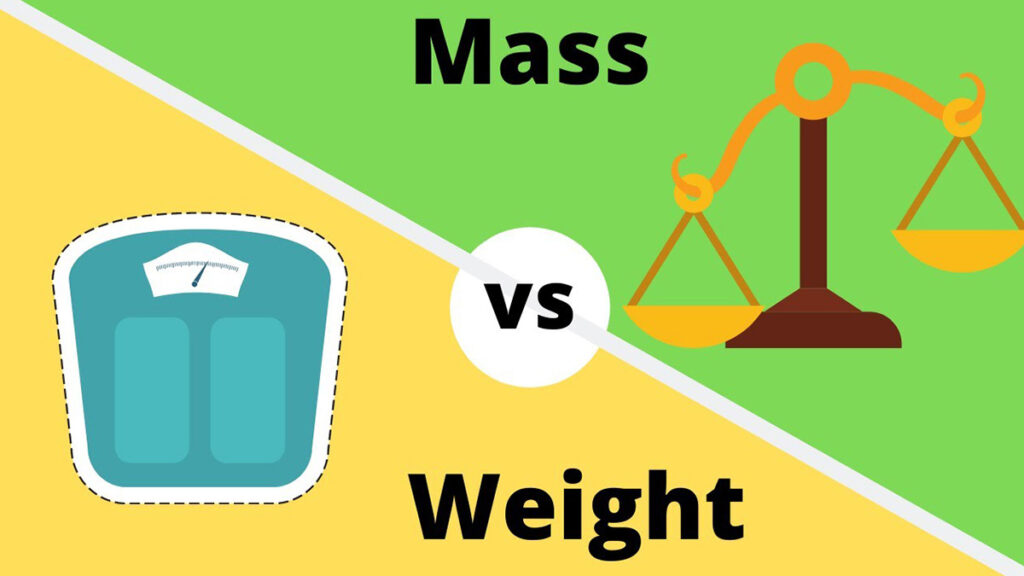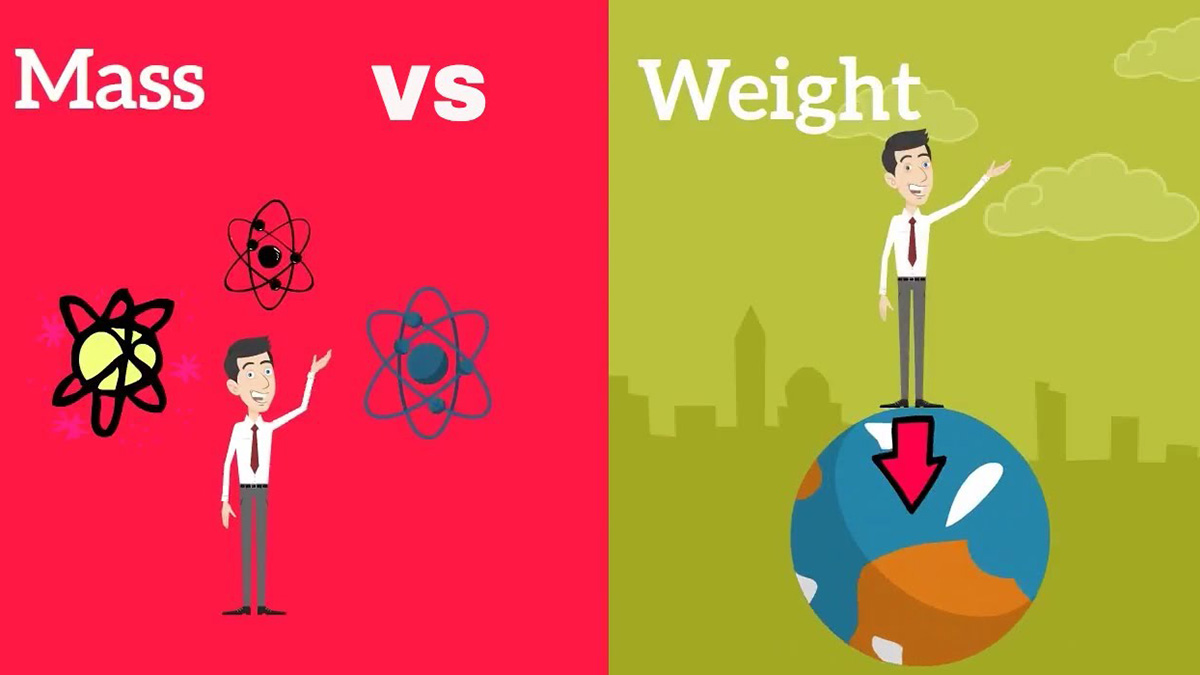Every time you hear the term mass and weight, they seem the same, although they are not!
Yet the two terms are in fact proportional to each other, i.e. if you know the mass (M) of something, you can calculate its weight (W) as W=mg G=9.8 N/kg.
I know this looks very confusing. But in this case, “G” represents the local gravitational field in which everything on the Earth’s surface has a proportional constant of 9.8.
Put simply, the difference between mass and weight is that mass measures the amount of matter in a given object, while weight is a measure of the effect of gravity on that mass – gravity causes a mass to have a weight.
To break down the equation from earlier, weight = mass x gravity.
Now let’s take a closer look at what mass and weight mean in detail.
What is Mass?
Mass indicates how much matter an object is made of and is usually measured in grams or kilograms.
In other words, if you can add up the number of protons, neutrons, and electrons (and other subatomic particles) that make up an object, that is the mass.
Mass is associated with force and can also be measured by calculating the force required to change the direction or velocity of an object. You may be familiar with the equation: F (force) = M (mass) x A (acceleration).

In addition, mass is also related to gravity, the force of attraction between two objects whose mass depends on their distance.
That is, they are not connected – gravity has no effect on mass.
Moreover, mass is indestructible and can never be zero. After all, if mass measures how much matter is contained in an object, how can an object be made of zero matter?
What is Weight?
So, weight is measured in newtons, not grams.
Remember earlier we said that mass and gravity are related? Well, weight is the gravitational interaction between objects that have mass.
You may have heard that the mass on Earth and the mass on the Moon are the same, but you weigh less on the Moon than you do on Earth. And that’s because gravity is not the same.
Unlike mass, weight can be zero, but that depends on gravity.
So Why Is There Confusion?
Till now, we know that mass and weight are not only related, but also proportional to each other.
So, if you know the weight of an object, you can calculate its mass and vice versa using the equations above.
Since we live on Earth, we can use these terms interchangeably. It’s not like you have to consider mass on another planet, unless you’re a scientist.

Not only that, but using weight in newtons would cause a lot of confusion for most people. For example, if I said that my dog weighed 45 kg, you would know that he was a pretty big dog. But if I said he weighed 445 newtons, that would mean nothing!
Scales, Mass and Weight
Scales measure the weight of something.
But when we get right down to it, the scale measures how much force is applied to the load cell and then uses gravity to determine the mass.
A scale cannot measure mass directly. This is because the weighing mechanism and the weight of an object depend on gravity.
When it comes to weighing large objects, such as a lorry, they can be driven onto a weighbridge supported by hydraulic cylinders. When the lorry drives onto the bridge, a force is applied to the cylinders and they must push upward to balance the weight – the weight is then calculated based on the hydraulic pressure.
To be clear: Scales measure the weight of something by measuring the force exerted. And although the force is calculated, it is expressed as mass, i.e. in kg or lb, which is why it can be confusing (as explained above).
However, because of this overlap, it will always be accepted to use the two terms interchangeably.
Please contact us to learn more about how scales work.

